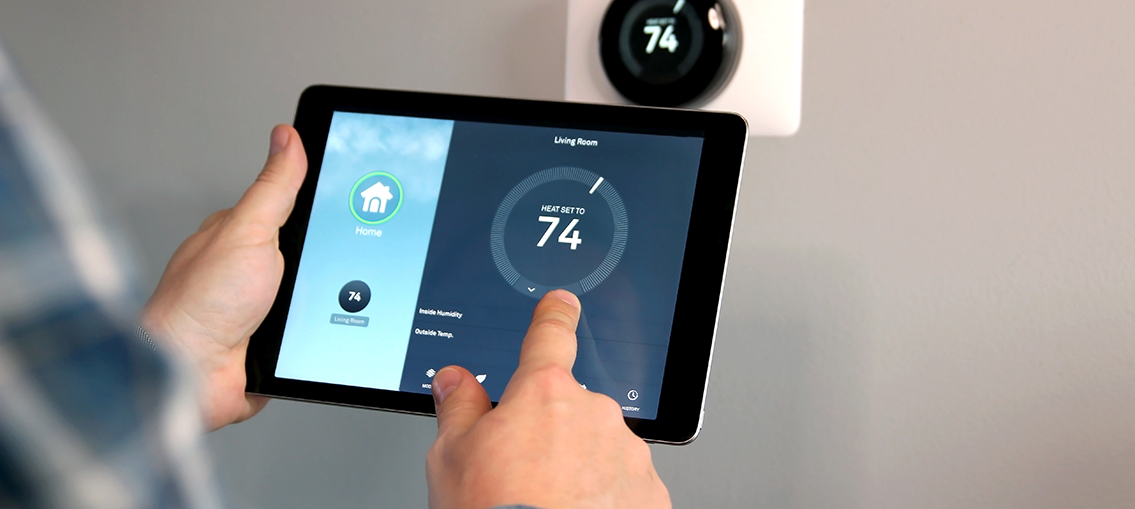What is "Energy Efficiency?"
Energy efficiency is a term to describe how a home reduces unnecessary or excessive energy consumption, cuts down on harmful greenhouse gas emissions, and reduces dependency on nonrenewable resources. While modern construction standards require newer homes to be built with greater energy efficiency, even older homes can implement upgrades to improve their energy efficiency. Whether you are house hunting or want to improve your current home, focusing on energy efficiency can lead to lower bills and a happier home.
Benefits of Optimizing Your Home's Energy Efficiency
Lower Energy Expenses
Simply put, better efficiency leads to lower bills. For example, a well-insulated and draft-free home can be heated or cooled with less energy and can maintain your desired temperatures for longer periods. The same can be said when low-flow accessories and highly efficient water heating bringing down your water bills. Introducing more efficient products and appliances throughout your home can further reduce energy usage and lower your bills.
Greater Comfort
You can keep your home cool in the summer and warm in the winter without having to worry about a massive bill at the end of each month. Installing a programmable thermostat can give you greater control over your home's climate, especially to reduce energy use when no one is home.
Increase Your Home's Value
While more minor changes like switching to LED light bulbs increase your energy efficiency marginally, investing in larger projects to improve your energy efficiency can increase your home's value. Installing solar panels or upgrading to high-efficiency home appliances are some examples of investments that will pay themselves off for years to come and will look attractive to podetial buyers if you ever decide to sell.
Environmentally Friendly
Increasing your home's energy efficiency means that you are lowering the overall energy consumption and reducing your home's carbon footprint.
Home Energy Audit: Understanding Your Home's Energy Use
There are a lot of factors that impact your home's energy efficiency. Some are relatively straightforward: the types of lightbulbs or other products you are using around your home. In contrast, some factors are a little more nuanced, such as having appliances or products placed close to your thermostat that give off additional heat. Many homeowners and homebuyers will get a home energy audit to better understand the homes’ overall energy efficiency. Having a professional conduct a home energy audit on your home will highlight areas impacting your home's energy waste and propose various solutions to remedy them. You can also conduct a DIY audit on a smaller scale to catch the more glaring issues.
Hiring a Professional
Hiring a professional energy auditor will give you the best understanding of your current energy consumption levels and a clear path to improve them further. The professional auditor will utilize various tools and conduct different tests during the home energy audit. For homebuyers, many home inspectors provide this service as an ancillary offering alongside their home inspection, which allows you to knock out two birds with one stone during the home buying process.
The energy audit may take anywhere from 1-4 hours and cost $200-$600 for most homeowners. However, this depends mainly on the size of the home. Your local energy providers may even offer free energy audits. The potential savings gained by implementing the changes proposed from your audit can cover its cost in a short period, making it an intelligent decision to get one sooner rather than later.
DIY Energy Audit
Another option for your energy audit is to conduct it yourself. This can be an effective way to identify energy waste issues around your home. While you might not measure specific levels without the tools and tests of a professional audit, you can catch essential areas of concern without all the bells and whistles. For example, using your hand to feel for any leaks around your windows and ducts can be an effective way to find these issues and repair them quickly.
Quick Tips to Improve Your Home's Energy Efficiency
- Switch to LED light bulbs.
- Wash clothes with cold water.
- Replace the filters in your home regularly.
- Close blinds and drapes during warm months to keep your home cooler, and open them during cold months to allow the sun to help warm your home.
- Turn off and unplug electronics when you are not using them.
- Replace your windows with more efficient models, especially if your current windows are single-pane.
- Turn off kitchen and bathroom room ventilation fans to avoid excessive use.
- Install a programmable thermostat to have great control over your home's climate and lower energy use when not at home.
- Turn off lights when not needed.
Wrapping Up
You can start small by introducing new habits and upgrading certain products and appliances around your home or take a big step like installing solar panels or updating your entire HVAC system. Regardless of your decision, striving to increase your home's efficiency will always pay off in a more comfortable home with lower bills.



